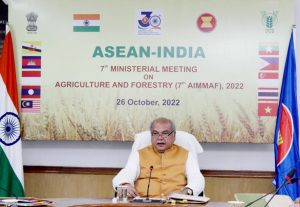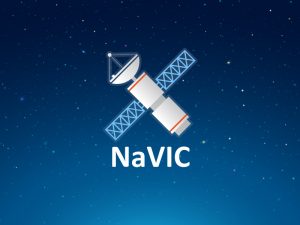Today Current Affairs: 28th October 2022 for UPSC IAS exams, State PSC exams, SSC CGL, State SSC, RRB, Railways, Banking Exam & IBPS, etc
Table of Contents
GM Mustard:

Genetic Engineering Appraisal Committee (GEAC) recently approved commercial cultivation of genetically modified mustard variety DMH (Dhara Mustard Hybrid)-11.
- The approval will make GM mustard only the second approved transgenic crop in India after Bt cotton, and the first such food crop that can be commercially cultivated by farmers. The GEAC approval is valid for the next four years.
- Though the GEAC had cleared the proposal in 2017, the Ministry had vetoed it and suggested that the GEAC hold more studies on the GM crop. The recommendation will now again go for the approval of the Environment Ministry.
- Hybridisation involves crossing two genetically dissimilar plant varieties that can even be from the same species.
- The first-generation (F1) offspring from such crosses tend to have higher yields than what either parent can individually give.
- Scientists at Delhi University’s Centre for Genetic Manipulation of Crop Plants (CGMCP) have developed the hybrid mustard DMH-11 containing two alien genes isolated from a soil bacterium called Bacillus amyloliquefaciens.
- The CGMCP scientists have deployed the barnase-barstar GM technology to create a robust and viable hybridisation system in mustard.
- This system was used to develop DMH-11 by crossing a popular Indian mustard variety ‘Varuna’ (the barnase line) with an East European ‘Early Heera-2’ mutant (barstar).
- DMH-11 is claimed to have shown an average 28% yield increase over Varuna.
- The move is seen as giving a boost to cultivation of mustard and eventually reducing the country’s edible oils import bills.
Satellite Phones:

A senior executive of Saudi Arabian oil company Saudi Aramco with an unauthorised satellite phone was arrested in Uttarakhand under sections of the Indian Telegraph Act and the Indian Wireless Telegraphy Act.
- It’s not legal to carry a satellite phone in India unless you have permission.
- Restrictions on the possession and use of these phones were tightened after the Pakistani terrorists who attacked Mumbai in November 2008 used these devices to keep in touch with their Lashkar-e-Taiba handlers.
- Section 6 of The Indian Wireless Telegraphy Act, 1933 makes it illegal to possess “any wireless telegraphy apparatus, other than a wireless transmitter.
Satellite phone:
- A satellite phone is a telephone that can connect to orbiting satellites.
- Similar to terrestrial mobile phones, they can connect to voice and short messaging services as well as low bandwidth Internet access.
- Satellite phones can connect from anywhere as they are directly connected to satellites around the world and do not depend on terrestrial mobile networks.
- Satellite phones usually cover most of the planet with fairly robust connectivity.
CCI Penalty On Google:

The Competition Commission of India (CCI) has imposed a penalty of Rs. 936.44 crores on Alphabet-owned Google for “abusing its dominant position” in markets related to the Android mobile device ecosystem.
- The CCI ordered an investigation into Google Unfair Business Practices in 2019 after consumers complained about Android-based smartphones.
- The allegations against Google were based on two agreements between Original Equipment Manufacturers (OEMs) of Android OS and Google — the Mobile Application Distribution Agreement (MADA) and the Anti-Fragmentation Agreement (AFA).
- The CCI stated that Google contravened competition law due to mandatory pre-installation of the entire Google Mobile Suite (GMS) under MADA and there was no option to uninstall the same.
- GMS is a collection of Google applications and Application Programming Interface (APIs) that help support functionality across devices.
- GMS includes Google’s key offerings such as Google Search, Google Chrome, YouTube, Play Store, and Google Maps.
- This action of Google amounted to imposition of unfair conditions on the device manufacturers and thereby violated Section 4 of the competition Act.
- Section 4 of the Competition Act is related to abuse of dominant position.
Competition Commission of India (CCI):
- Competition Commission of India (CCI) is a statutory body of the Government of India responsible for enforcing the Competition Act, 2002, it was duly constituted in March 2009.
- The Monopolies and Restrictive Trade Practices Act, 1969 (MRTP Act) was repealed and replaced by the Competition Act, 2002, on the recommendations of the Raghavan committee.
ASEAN-India Ministerial Meeting:

7th ASEAN-India Ministerial Meeting held on Agro-Forestry under the co-chairmanship of Union Agriculture Minister.
- In the meeting, the progress in implementation of various programs and activities under the Medium Term Action Plan of ASEAN-India Cooperation (Year 2021-2025) was reviewed.
- The meeting also welcomed the 30th anniversary of ASEAN-India relations.
The Association of Southeast Asian Nations (ASEAN):
- It was established on 8 August 1967 in Bangkok, Thailand, with the signing of the ASEAN Declaration (Bangkok Declaration) by the Founding Fathers of ASEAN: Indonesia, Malaysia, Philippines, Singapore and Thailand.
- Brunei Darussalam joined ASEAN in 1984, followed by Viet Nam in 1995, Lao PDR and Myanmar in 1997, and Cambodia in 1999, making up what is today the ten Member States of ASEAN.
- India’s relationship with ASEAN has emerged as a key cornerstone of our foreign policy.
- The relationship has evolved from the ‘Look East Policy’ enunciated in early 1990s which led India to become a Sectoral Partner of ASEAN in 1992, a Dialogue Partner in 1996 and a Summit-level Partner in 2002.
Expansion Of NavIC:

India plans to expand its regional satellite navigation system NaVIC in a bid to increase its use in the civilian sector and also by ships and aircraft travelling far from the country’s borders.
- NaVIC or the Indian Regional Navigation Satellite System (IRNSS) uses seven satellites to provide real-time positioning and timing services in India and an area extending up to 1,500 km from the country’s borders.
- Of the seven satellites used by NaVIC at present, three are in the geostationary orbit and four in the geosynchronous orbit.
- Its use is currently restricted and is now utilised for tracking and delivering information about natural disasters, providing emergency warning alerts to fishermen travelling into the deep sea, and monitoring public traffic in India.
- Currently, NavIC is only compatible with the L5 and S bands and hasn’t easily penetrated into the civilian sector.
- A major forthcoming change is to add the L1 band into NavIC.
- This bandwidth is part of the GPS and is the most used for civilian navigational use.
National Means Cum Merit Scholarship Scheme:

Last date to submit applications for National Means cum Merit Scholarship Scheme (NMMSS) is 31st October, 2022 on National Scholarship Portal (NSP).
- Under the Scheme, scholarships are awarded to meritorious students of economically weaker sections to arrest their drop out at class VIII and encourage them to continue their education at secondary stage.
- This is a 100% centrally sponsored scheme.
- NMMSS is boarded on the National Scholarship Portal (NSP) – a one stop platform for scholarship schemes given to students.
- The scholarships are disbursed directly into the bank accounts of selected students by electronic transfer through Public Financial Management System (PFMS) following DBT mode.
- One lakh fresh scholarships are awarded to selected students from class IX every year and their continuation / renewal in classes X to XII for students studying in State Government, Government-aided and local body schools.
- The amount of scholarship is Rs. 12000/- per annum
- Students whose parental income from all sources is not more than Rs. 3,50,000/- per annum.
- The students must have minimum of 55% marks or equivalent grade in Class VII examination for appearing in the selection test for award of scholarship (relaxable by 5% for SC/ST students).
Goddess Lakshmi And Lord Ganesh On New Currency Notes:

Delhi Chief Minister Arvind Kejriwal recently appealed to the Union government to print images of Goddess Lakshmi and Lord Ganesh on new currency notes for the country’s “economic prosperity.
- Section 22 of The Reserve Bank of India Act, 1934, gives RBI the “sole right” to issue banknotes in India.
- Section 25 states that “the design, form, and material of bank notes shall be such as may be approved by the Central Government after consideration of the recommendations made by the [RBI’s] Central Board”.
- The RBI’s Department of Currency Management has the responsibility of administering the core function of currency management.
- If the design of a currency note has to change, the Department works on the design and submits it to RBI, which recommends it to the central government. The government gives the final approval.
- The Coinage Act, 2011 gives the central government the power to design and mint coins in various denominations.
- In the case of coins, the role of the RBI is limited to the distribution of coins that are supplied by the central government.
- The government decides on the quantity of coins to be minted on the basis of indents received from the RBI on a yearly basis.
7th Annual Meeting Of The Board Of Governors Of AIIB:

Union Minister of Finance & Corporate Affairs Smt. Nirmala Sitharaman recently attended the 7th Annual Meeting of the Board of Governors of AIIB via video conference.
- The theme of this year’s Annual Meeting was “Sustainable Infrastructure Toward a Connected World”.
- Asian Infrastructure Investment Bank is a multilateral development bank that aims to improve economic and social outcomes in Asia.
- Headquarters: Beijing, China.
- All powers of the Bank are vested in our Board of Governors, which is the highest decision-making body under our Articles of Agreement.
- AIIB has 105 members. China is the AIIB’s largest shareholder with a 26.5% voting share.
- India is the second-largest, with 7.5%, followed by Russia, which has a 5.97% voting share.
- India is a Founding Member of AIIB. India also has the largest project portfolio within AIIB.




